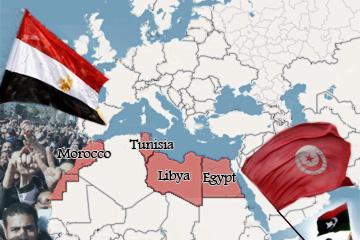
Europe, like other global hegemons, failed to predict the ‘Arab Spring’. In part their inability to foresee the uprisings is suggestive of the nature of the traditional relations between Europe and authoritarian regimes in the region. European policy has dictated a tendency towards strategic considerations - as opposed to moral ones - in their policies towards these countries. This position made Europe seem hesitant, and even confused when the uprisings erupted, and until the last moments of the Ben Ali and Mubarak regimes in Tunisia and Egypt respectively, they attempted to capitalise on the assumed steadfastness of these regimes, expecting them to weather the sweeping popular anger that engulfed the countries.Europe only recently moved to keep pace with popular demands and support the new situation emerging from the democracy-inspired uprisings. Additionally the approach and methods of responding to and dealing with the changing scene in Middle East and North Africa (MENA) region confirmed political divisions among Europeans; regarding the situation in Libya, France and Britain pursued the same approach - that is the approach generally taken by the United States. This resulted in anger amongst some who regarded France and Britain as casting a monopoly on Europe’s position.
